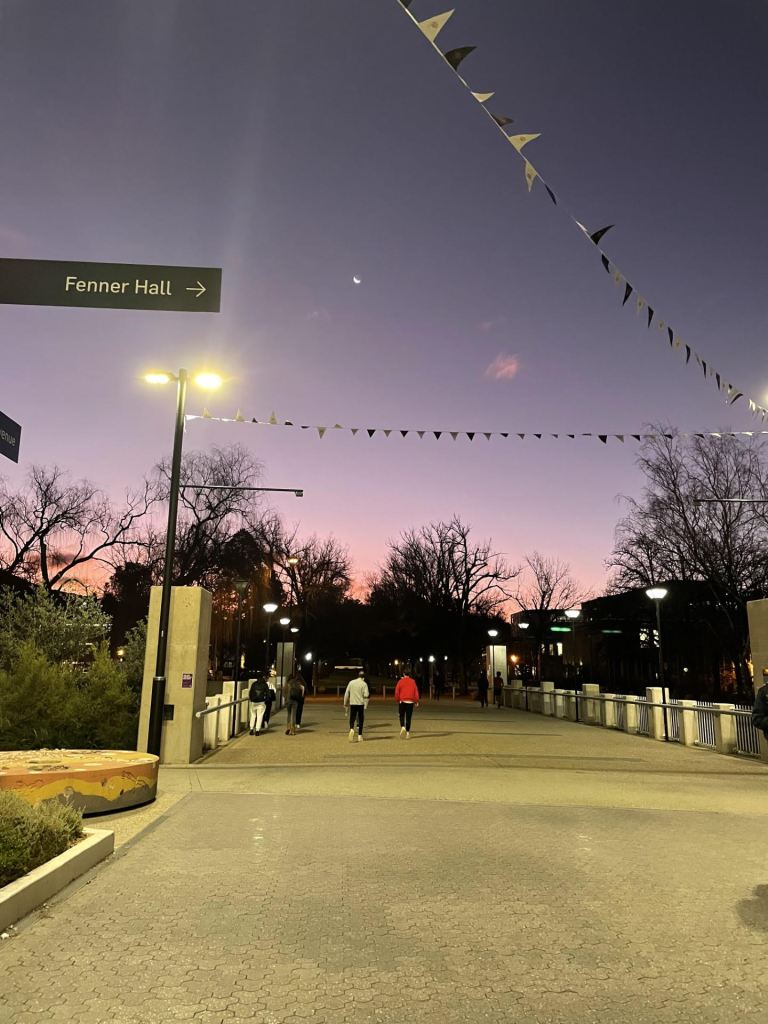Going abroad despite all the amazing experiences can be undeniably stressful. Certainly adding specific learning needs/disabilities on top can add to the potential anxiety you might be feeling. At the time of my departure I had been diagnosed with dyslexia, however I also had undiagnosed ADHD. Therefore, most of my advice will pertain to having dyslexia and (undiagnosed) ADHD, and my specific experience; however my suggestions can certainly be useful to broader specific learning experiences/needs! It is also important to note that I went abroad to Australia, specifically the Australian National University in Canberra, therefore this is the context to my personal experience.

Before discussing the practical implementations of transferring your learning support plan (LSP) to your abroad academic institution, the first thing I would suggest is having ‘The Wallet’. I personally would recommend this wallet to be an A4 clear file bag so you can see everything inside. The purpose of this wallet is to store all your most important documents. This includes printed copies of your visa, boarding pass, health insurance, proof of student status, accommodation letters, and any other key documentation. I found having physical copies of all my important documents in one place to be really beneficial in the airports, moving into accommodations, setting up a bank account etc. Also, having everything in one place made it less likely for me to lose things or forget about them. I would also strongly recommend having all these documents scanned and in a file on OneDrive/Google Drive, so you have multiple copies saved. I found this made admin a lot less stressful and more streamlined/manageable.
With regards to going abroad I would make sure make sure to do research on what healthcare is available to you, and what support is available at your specific academic institution. My university had an onsite doctors surgery you could access easily; however, this is not the case everywhere. Certain countries also don’t prescribe specific medications, ADHD medications are a prime example of this. If possible I would recommend having physical copies of your prescriptions (put them in ‘The Wallet’), as well as scanned versions. This will be beneficial if you are having to set up your prescription overseas; if you are concerned or in doubt about your prescriptions, I would advise speaking to your GP before departure.

With regards to your specific academic institutions, make sure you have a copy of your diagnostic report and your learning support plan saved to your computer. I would also again recommend having physical copies in ‘The Wallet’. When I arrived in Australia I emailed these to the Accessibility team; however upon reflection, if you already have your offer, I would recommend sending these over in advance. I wish I had done this sooner, as I had to do quite a bit of emailing back and forth; this resulted in me having to wait a while to ensure my LSP was implemented. Additionally, the LSP is likely to be called something different abroad. The ANU equivalent of the LSP was the Education Access Plan (EAP) so make sure you take this into account when skimming over your emails! You don’t want to accidently miss an appointment/crucial information regarding your LSP/EAP.
You may have to renew your learning support plan; I had to do this at the start of my second semester at ANU. If you are in doubt as to whether you have to do this, I would recommend asking the department when you arrive, or emailing them at the beginning of your second semester.
I would also advocate for being vocal about your learning requirements/disabilities if you feel comfortable doing so. I made a point of discussing my dyslexia with each module convenor/seminar tutors at the beginning of my modules/semester. This was undeniably beneficial, as it meant my tutors were more understanding of any difficulties I may face, including the need for extensions on coursework. Additionally, it is important to note that ANU did not have a ‘yellow sticker system’ like we do here at the University of Sheffield. I would recommend talking with your institution’s Accessibility Department to see if you need to put any important markers or information on your submitted work/exams.

These are my main tips and experiences regarding my time abroad! Do not let the potential stress of this deter you. Overall I had a very smooth experience abroad and had next to no issues with my LSP/EAP; all I can do is emphasise the importance of doing as much groundwork before your departure! Research your academic institution abroad and assemble ‘The Wallet’ early, your future self will thank you!

